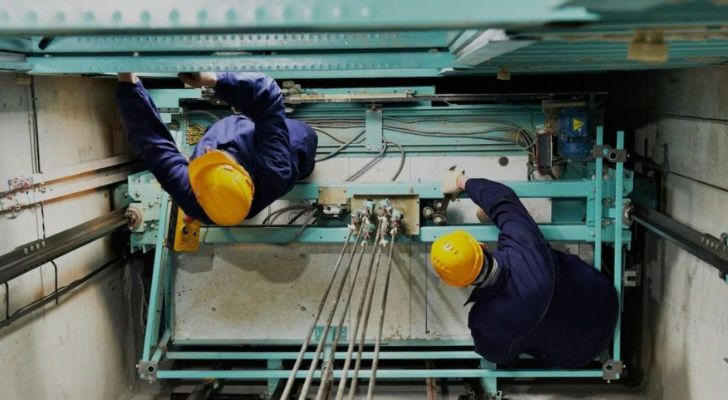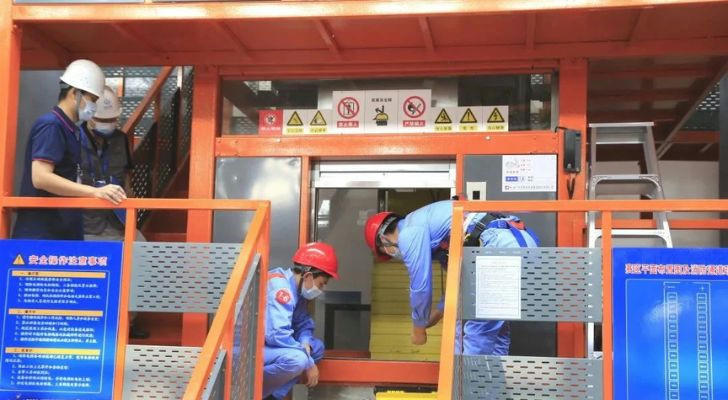Master the Skills of Elevator Maintenance: Hands-On Training for a High-Demand Career
Elevators are a crucial part of modern buildings, ensuring safe and efficient vertical transportation. From high-rise office towers to residential complexes, skilled elevator technicians play a vital role in keeping these systems running smoothly. If you’re interested in a career that combines mechanics, electronics, and problem-solving, elevator maintenance training offers a stable and rewarding profession.
With the right training, you’ll learn how to install, inspect, and repair elevator systems, setting yourself up for a future filled with opportunities. Let’s explore what it takes to become a qualified elevator technician and why this trade remains one of the most in-demand professions today.

Why Pursue Elevator Maintenance Training?
A High-Demand, Essential Profession
Modern buildings rely on elevators, escalators, and lifts for efficient movement. As urban development continues to grow, the need for trained elevator technicians remains constant. Whether it’s installing new systems, repairing malfunctions, or ensuring compliance with safety regulations, professionals in this field are always in demand.
With advancements in smart elevator technology and energy-efficient designs, skilled technicians are also needed to maintain and upgrade existing systems. This makes elevator maintenance not only a stable career but also one that evolves with technological progress.
Hands-On, Practical Skills
Unlike traditional desk jobs, elevator maintenance is highly hands-on. Training programs focus on practical experience, allowing you to work directly with motors, control systems, and safety mechanisms. Whether you're troubleshooting a malfunction, replacing worn-out components, or conducting routine inspections, each task provides a sense of accomplishment and technical expertise.
Elevator maintenance involves a mix of mechanical and electrical work, making it a diverse and engaging profession for those who enjoy problem-solving and working with their hands.
Career Stability and Growth
The elevator industry offers several career paths, including:
- Installation Technician: Setting up new elevator systems in buildings.
- Maintenance Technician: Conducting regular inspections and servicing to prevent breakdowns.
- Repair Technician: Diagnosing and fixing malfunctions in elevators and escalators.
- Modernization Specialist: Upgrading older elevator systems with new technology.
- Safety Inspector: Ensuring elevators meet industry regulations and safety standards.
Many elevator technicians also work for manufacturers, city governments, or start their own businesses, offering even greater financial and professional freedom.

What You’ll Learn in Elevator Maintenance Training
Elevator Systems and Safety
Understanding elevator fundamentals is crucial for any aspiring technician. You’ll learn about:
- Mechanical and Electrical Components: Motors, cables, pulleys, and control panels.
- Safety Systems: Emergency brakes, backup power, and fire safety protocols.
- Elevator Codes and Compliance: Industry standards that ensure system safety and reliability.
- Protective Equipment: Using tools and gear to prevent workplace injuries.
Safety is a major component of training, as working with heavy machinery and electrical systems requires strict adherence to regulations.
Installation and Repair Techniques
A significant part of training focuses on installation and repair skills. You’ll learn:
- Reading Technical Schematics: Understanding elevator layouts and wiring diagrams.
- Assembling and Installing Components: Working with hydraulic, traction, and machine-room-less (MRL) elevators.
- Troubleshooting Malfunctions: Diagnosing and repairing electrical and mechanical failures.
- Replacing Worn-Out Parts: Maintaining motors, cables, and control circuits.
By working with real elevator systems during training, you’ll develop the confidence to handle installations and repairs efficiently.
Troubleshooting and Maintenance
Elevator systems require ongoing maintenance to ensure safety and efficiency. Training will cover how to:
- Identify and Fix Common Issues: Addressing door malfunctions, electrical failures, and misaligned sensors.
- Use Diagnostic Tools: Learning to work with voltage meters, oscilloscopes, and software-based monitoring systems.
- Perform Preventative Maintenance: Conducting routine checks to minimize downtime and costly repairs.
- Upgrade to Smart Elevator Systems: Implementing new technologies like AI-driven maintenance alerts and energy-efficient motors.
Career Opportunities for Elevator Technicians
After completing training, various career paths become available, including:
- Apprentice Technician: Gaining hands-on experience under a licensed professional.
- Certified Elevator Technician: Working independently on maintenance and repairs.
- Field Supervisor: Managing teams that install and service elevator systems.
- Inspector or Compliance Officer: Ensuring buildings meet safety and operational standards.
- Specialist in Smart Elevators: Focusing on next-generation elevator technology and automation.
Technicians also have the opportunity to work for major elevator companies, construction firms, or city transportation departments, ensuring career stability and growth.
How to Get Started
To begin a career in elevator maintenance, look for a training program that combines classroom learning with hands-on experience. Many technical schools, vocational colleges, and apprenticeship programs offer structured training that covers both foundational knowledge and practical application.
Some key factors to consider when choosing a program:
- Accreditation: Ensure the program meets industry standards.
- Hands-On Training: Look for courses with real-world practice using elevator systems.
- Certification Pathway: Many programs prepare you for licensing exams required in the field.
- Job Placement Assistance: Some programs help graduates find apprenticeships or entry-level positions.

Final Thoughts
Elevator maintenance training is an excellent investment in a career that offers stability, growth, and high demand. Whether you’re interested in installation, maintenance, or modernization, mastering this trade opens the door to numerous opportunities.
Supporting Data and Industry Reports
- Job Growth: According to the U.S. Bureau of Labor Statistics (BLS), employment for elevator installers and repairers is projected to grow by 7% from 2020 to 2030, outpacing the average job growth rate.
- Salary Expectations: The median annual wage for elevator technicians was $97,860 in 2022, with experienced professionals earning significantly more in specialized fields.
- Infrastructure Expansion: Reports from the National Elevator Industry, Inc. (NEII) indicate that as urbanization increases, demand for elevator maintenance professionals will continue to rise, ensuring a future-proof career.
If you enjoy working with your hands, solving mechanical and electrical challenges, and being part of an essential industry, elevator maintenance training could be the perfect path for you!
